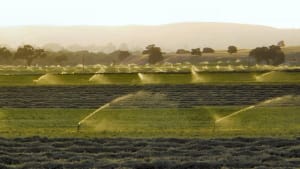The Western Producer
by Barb Glen
 |
Although the Roundup Ready forage has been approved only for Eastern Canada, it’s been found in fields in Alberta and Saskatchewan
OLDS, Alta.— Discovery of genetically modified alfalfa in Western Canada, where it has not yet been approved, highlights the likelihood of its eventual spread, said the president of Forage Seed Canada Inc.
Heather Kerschbaumer said it would be preferable to keep GM alfalfa out of the West, at least until it is accepted by export markets.
However, discovery of the Roundup Ready forage in one Saskatchewan and one Alberta field within the past few years shows that will be difficult if not impossible.
“I think it’s going to be really hard to keep it out because there’s going to be farmers that don’t know any better,” Kerschbaumer said in an interview at the Alberta Forage Industry Network meeting March 12.
“They’re going to think, ‘for my situation, it’s not going to hurt me. I’m going to feed my own alfalfa to my own cows … who’s going to care?’ ”
However, alfalfa can easily spread into ditches, fence lines and field edges, regardless of good intentions.
“He will never know. He’s not doing it intentionally but that unintentional way of contaminating, how do you keep it out?” asked Kerschbaumer.
Forage broker Ed Shaw agreed that GM alfalfa, which is grown in the United States and has been approved for growth in Eastern Canada, will be difficult to contain.
“I personally think that there is enough cross contamination and there is enough seed that is coming from the States, that … it’s going to be hard to keep it out,” Shaw said.
Forage Seed Canada finalized its position statement on GM alfalfa in February and has sent it to government and the industry. It says the organization cannot support commercialization of GM alfalfa until it has international consumer, market and industry acceptance.
The organization also said it requires an identity preservation system for alfalfa varieties in Canada, a rapid and cost effective test to determine GM presence, an economic impact assessment on how GM alfalfa would affect forage seed markets and a liability clause to compensate growers for lost seed markets because of contamination from gene transfer or uncontrolled feral alfalfa.
“The CFIA has failed to do a complete due diligence assessment in the approval of GE alfalfa for release into Canada by neglecting to factor in potential market losses or market impact by allowing GE traits in alfalfa into Canada before widespread market acceptance,” the position paper said.
Canadian Forage Growers Association president Doug Wray asked if Forage Seed Canada’s objections would be the same if the GM trait involved low lignin or drought tolerant qualities.
Kerschbaumer said Forage Genetics International, which owns the marketing rights for GM alfalfa, has said it plans to sell only stacked trait varieties, all of which will include glyphosate tolerance.
She said her organization supports regulations based on sound science, but the risk of export market loss is the primary issue.
Pollination supplier Weldon Hobbs said the absence of GM alfalfa in the West provides an opportunity.
“If the world accepts it, we would be in a lot of trouble not grasping it and trying to keep up with the rest of the world, but right now we have an advantage in trying to stay clean and take over a lot of markets,” he said.
Kerschbaumer said Canada’s share of the export alfalfa seed market is small, at about $145 million, but the market for hay is worth billions.
“We have everybody on our shoulders,” she said of seed growers.
“If we can’t have clean seed, we’re not going to have clean hay.”
Shaw said many international markets accept .1 percent GM in imported product, but China has a zero tolerance policy that Canada and other countries could tap.
Growers in the United States initially obtained a premium for growing GM alfalfa seed, but Kerschbaumer said that has disappeared.
“You actually get a premium now if you have no GE in your seed, so it has done a complete flip.”

